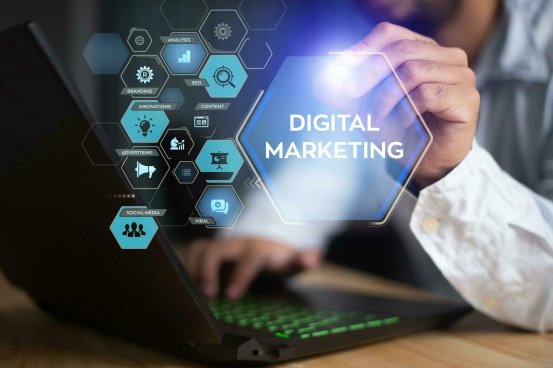The digital marketing landscape is evolving rapidly, and maintaining a strong online presence is more important than ever. With shifting algorithms and emerging platforms, businesses must ensure their strategies are not only effective today but also resilient for the future. This article explores tactics, tools, and insights for thriving in 2025, emphasizing data-driven decisions and authentic engagement.

Pursuing Online Marketing Degrees: A Flexible Pathway to Growth
1. Why Choose an Online Marketing Degree?
Modern education must align with busy lifestyles, and online marketing degrees provide the flexibility needed to balance learning with daily responsibilities. Online study is no longer a secondary choice—it’s a preferred option for career-focused individuals. Students can access materials anytime, from anywhere, fitting coursework around full-time jobs, family life, or entrepreneurial projects. This flexibility ensures education integrates smoothly into varied schedules.
2. A Comprehensive Curriculum for Tomorrow’s Marketers
A strong online marketing program delivers broad knowledge in essential areas such as advertising, consumer psychology, market research, and brand management. Students also gain skills in digital marketing techniques, including SEO, content creation, email campaigns, and social media strategies. Advanced subjects—like artificial intelligence, automation, and analytics—are integrated to prepare marketers for today’s tech-driven environment. Many programs include projects, internships, and case studies, bridging theory with practical application.
3. Learning at Your Own Pace
Self-paced programs give learners control over their academic journey. Complex topics can be studied in depth, while familiar areas can be completed more quickly. This structure allows students to balance work and personal life more effectively. Online platforms also provide tools such as forums, reminders, and interactive sessions to keep learners engaged. Some universities offer accelerated paths or part-time formats, further tailoring the learning experience.
Harnessing Analytics for Digital Marketing Excellence
Digital marketing success relies heavily on data-driven strategies. Analytics helps marketers identify what resonates with audiences, measure campaign outcomes, and refine efforts for continuous improvement.
1. The Role of Social Media Analytics
As social platforms expand, marketers must master audience insights. Tools now track engagement—clicks, impressions, likes, comments, and shares—offering clarity on what content performs best. These insights guide posting schedules, optimize strategies, and help build lasting connections. With advanced targeting features, businesses can tailor campaigns to specific demographics, ultimately increasing leads and fostering loyalty.
2. Shifting Focus Toward Engagement
Follower counts are no longer the primary measure of success. Engagement—such as meaningful interactions, shares, and community growth—has become the more accurate metric. Building engaged communities requires creating content that sparks conversation and encourages user participation. Integrating user-generated content and running interactive campaigns amplifies reach, boosting brand presence in a natural way.
3. AI’s Influence on Marketing ROI
Artificial intelligence is reshaping marketing by automating processes and enabling advanced personalization. AI systems analyze data to predict behaviors, recommend strategies, and optimize campaigns in real time. From predictive analytics to chatbots and automated email sequences, these tools increase efficiency, reduce human error, and improve targeting. As AI manages repetitive tasks, marketers can focus more on strategy and creativity, leading to improved ROI.
4. Maximizing Impact Across Channels
Today’s fragmented digital environment requires a multi-channel approach. Businesses combine organic content, paid advertising, email campaigns, and influencer partnerships to expand reach. Consistent evaluation of ROI across these channels ensures resources are used effectively. Data-driven adjustments help marketers refine approaches, allocate budgets wisely, and identify underperforming areas that need change.
Networking and Collaboration: Keys to Modern Marketing
Networking and digital collaboration are becoming critical components of marketing success, amplifying visibility and impact.
1. Authentic Engagement as a Differentiator
Trust and authenticity are central to building lasting connections. By engaging in discussions, responding to customer feedback, and collaborating with like-minded influencers, marketers can establish credibility. Influencer partnerships are most effective when there is alignment between brand values and audience interests, fostering genuine connections.
2. Staying Ahead of Platform Trends
Adapting to platform-specific dynamics is essential. For instance, TikTok’s algorithm favors smaller accounts with high engagement, making it an excellent platform for organic growth. Continuous learning and strategic adjustment to these changes ensures ongoing relevance.
3. Redefining Success Metrics
Metrics are shifting toward content sharing, conversation, and reach rather than follower counts alone. This emphasizes the importance of community-focused content strategies. Collaborations with creators help extend reach, nurture engagement, and maintain momentum.
4. Using Social Media Insights Effectively
Data analysis remains a powerful tool. Tracking engagement patterns, identifying peak posting times, and studying competitors’ tactics help marketers improve campaigns. This analytical approach ensures that resources generate maximum impact while optimizing ROI across multiple platforms.
Conclusion
Digital marketing in 2025 demands adaptability, data-driven strategies, and authentic engagement. From online education opportunities and advanced analytics to AI integration and collaborative networks, businesses and professionals alike must embrace continuous learning and experimentation. With these approaches, marketers can not only navigate today’s landscape but also prepare for a sustainable and successful future.
References:
https://agencyab.com/2025-marketing-strategy-tactics/
https://www.socialinsider.io/blog/organic-social-media-growth
